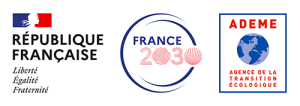Following on from Plaidoyer pour un monde plus durable (A Plea for a More Sustainable World), Nicolas Imbert has published Repenser la planète (Repairing the Planet). Executive Director of Green Cross France et Territoires for fourteen years, he advocates an ecology of solutions based on cooperation and resilience. An interview about water, the Mediterranean, innovation, and regional levers for action.
In Healing the Planet, you invite us to “heal” rather than “manage” our environment. If we apply this approach to water and the oceans, what does “healing” these living environments mean in concrete terms?
Healing means recognizing that aquatic environments are living organisms and ecosystems, capable of regenerating themselves as soon as we stop mistreating them. We have seen this in the Mediterranean: in twenty years, the quality of bathing water has improved in city centers, Posidonia is beginning to regenerate, and biodiversity is returning. Water has the ability to renew itself in short cycles of three to seven years. Every improvement in water is an improvement for the climate and human health.
You point out that water is the primary marker of climate change. How does the freshwater and saltwater crisis symbolize the need to “heal the planet”?
Because everything starts with water: it is the only irreplaceable resource necessary for life, food, energy, and our urban uses. However, we are entering an era of contrasts, with extreme droughts on the one hand and torrential rainfall on the other. The intrusion of brackish water into freshwater aquifers is accelerating. This forces us to change our relationship with water: no longer considering it as a raw material to be exploited, but as a common good to be conserved and shared.
How can we turn this resource, which is currently a source of tension, into a driver of cooperation and territorial innovation?
Water is a powerful lever for dialogue. Historically, societies have been built around it. We must reconnect with this “water democracy” in order to rediscover a collective sense of purpose. Regions must develop concrete action plans, identify their vulnerabilities, and shift from a reactive to a transformative approach. Water can become a crucible of resilience if it is at the heart of regional planning and economic choices.
You often mention innovations related to the water cycle. What solutions do you think are the most promising today?
We know how to technically clean up, recycle, and regenerate even highly polluted water. The circular economy of water is a reality in certain areas: we traditionally talk about the seven lives of water.
However, France is generally lagging behind in terms of wastewater reuse, closed circuits, and progressive pricing. The levers exist: social pricing, technological innovation, shared governance, etc. The challenge is to bring these tools together.
Can innovation also come through seawater desalination?
Yes, if we can control its environmental footprint, whether in terms of energy or biodiversity. In addition to the necessary water savings and as part of a range of efficient solutions – the famous 4Ds of decentralized, diversified, decarbonized, and democratic desalination – can be useful and appropriate in many contexts, particularly coastal or island contexts, especially if it is integrated into overall territorial management. It is a tool for securing access to water.“Healing rather than managing our planet”
